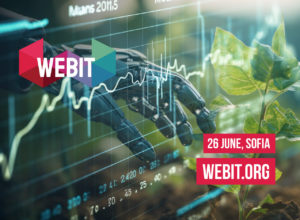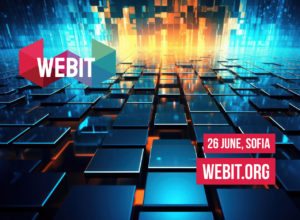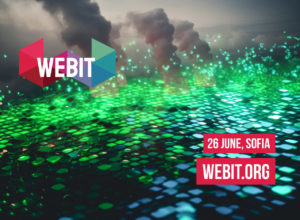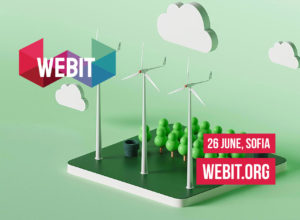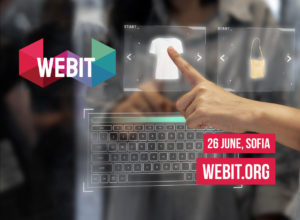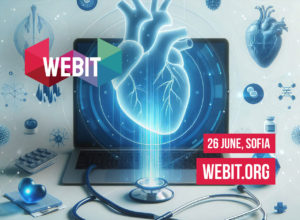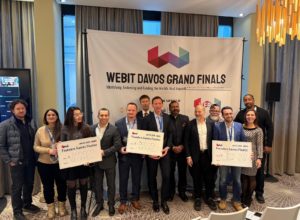ESG Investment Strategies with Reinforcement Learning: A Smart Approach to Sustainable...
Introduction
Environmental, Social, and Governance (ESG) investing has surged in popularity as investors seek to align financial returns with sustainability and ethical considerations. Traditional ESG investment strategies often rely on fundamental analysis, ESG ratings, and passive screening methodologies. However, with the rise of artificial intelligence (AI) and machine learning (ML), reinforcement learning (RL) is emerging as a powerful tool to optimize ESG portfolios dynamically.What is Reinforcement Learning?
Reinforcement learning is a branch of AI where an agent learns to make decisions by interacting with an environment and receiving feedback in the form of rewards or penalties. Unlike supervised learning, which requires labeled data, RL thrives in dynamic, uncertain environments, making it well-suited for financial markets. In ESG investing, RL agents can be trained to maximize returns while adhering to sustainability constraints, continuously adapting strategies based on real-time market and ESG-related data.The Role of RL in ESG Investment Strategies
1. Dynamic Portfolio Optimization
Traditional portfolio optimization methods, such as Markowitz’s Modern Portfolio Theory (MPT), often struggle to incorporate ESG factors dynamically. RL models can learn from historical and real-time ESG data, adjusting asset allocations based on evolving sustainability trends and financial performance.2. Real-Time ESG Sentiment Analysis
RL models can integrate NLP-driven ESG sentiment analysis from news, social media, and regulatory reports. This allows investment strategies to adapt to market reactions to ESG-related events, such as climate policies, corporate scandals, or regulatory changes.3. Adaptive Risk Management
ESG factors influence financial risks, such as regulatory fines, reputational damage, and climate-related risks. RL-powered investment strategies can dynamically hedge against these risks by shifting allocations towards companies with robust ESG practices while avoiding high-risk assets.4. Carbon-Neutral Portfolio Construction
Investors aiming for carbon-neutral or net-zero portfolios can use RL to optimize asset selection by considering carbon footprints, renewable energy investments, and sustainability commitments of companies. RL agents can continuously adjust weightings based on carbon reduction targets and new ESG disclosures.5. Reinforcement Learning for Green Bond Investments
Green bonds, which fund environmentally friendly projects, are a growing asset class. RL models can analyze macroeconomic indicators, climate policies, and corporate sustainability initiatives to identify the most promising green bonds, ensuring both financial returns and positive environmental impact.Challenges and Considerations
Despite its promise, RL in ESG investing comes with challenges:- Data Quality & Availability: ESG data is often unstructured, inconsistent, and subjective. Ensuring high-quality, reliable data is crucial for RL models.
- Regulatory & Ethical Concerns: AI-driven decision-making in ESG must align with ethical standards and regulatory guidelines.
- Computational Complexity: Training RL models for financial markets requires substantial computational power and expertise.
- Market Adaptability: ESG factors evolve over time, requiring continuous model retraining to maintain effectiveness.
Future Outlook
The integration of reinforcement learning into ESG investment strategies represents a paradigm shift in sustainable finance. As AI models become more sophisticated and ESG data sources improve, RL-powered investing will enable investors to optimize returns while actively driving positive environmental and social change.Conclusion
Reinforcement learning is set to revolutionize ESG investing by enabling adaptive, data-driven decision-making in sustainable finance. By leveraging AI, investors can construct resilient, high-performing ESG portfolios that align with ethical and environmental goals. As ESG investing continues to gain momentum, RL will be a game-changer in the quest for a more sustainable and profitable future. Are you ready to harness AI for smarter ESG investing? Join the discussion and learn from global leaders in the industry on the 26th of June in Sofia. Webit: Business, Technology and People in the era of AI and Web3 is an exciting opportunity for industry leaders and experts to come together to discuss the latest trends and developments in the field of the ESG Investment Strategies with Reinforcement Learning. Check our ticket options here: Business, Technology and People in the era of AI and Web3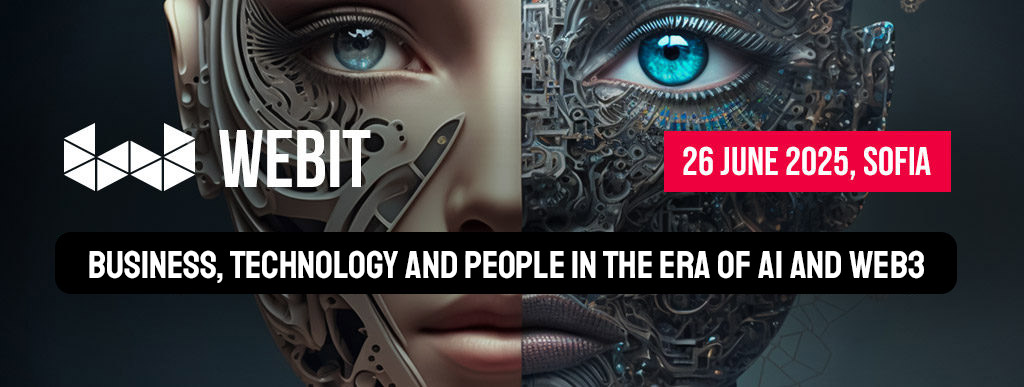
Web3 & Blockchain for Decentralized Supply Chain Transparency
In an era where consumers demand ethical sourcing and businesses strive for efficiency, transparency in supply chains has never been more critical. Traditional supply chains, burdened by opaque processes and intermediaries, often struggle with inefficiencies, fraud, and trust issues. Enter Web3 and blockchain—technologies poised to revolutionize the supply chain industry by enhancing transparency, security, and accountability.

Web3 & Blockchain: A Paradigm Shift
Web3, the next phase of the internet powered by blockchain and decentralized technologies, introduces trustless transactions, smart contracts, and decentralized autonomous organizations (DAOs). By integrating blockchain with supply chain management, businesses can move away from centralized authorities and create a more resilient and transparent system. Blockchain, a decentralized digital ledger, records transactions securely and immutably. This means every stage of a product’s journey—from raw materials to end consumers—can be tracked, verified, and audited in real time. Unlike traditional supply chains, where information is often siloed or manipulated, blockchain ensures data integrity and accessibility.Emerging Trends in Web3-Powered Supply Chains
1. Tokenization of Supply Chain Assets
Tokenization enables the digital representation of physical assets on the blockchain. For instance, raw materials, goods in transit, or warehouse inventories can be converted into unique tokens, making them easier to track, trade, and manage. Non-fungible tokens (NFTs) can also be utilized for authentication and certification of high-value goods, preventing counterfeiting.2. Smart Contracts for Automation
Smart contracts—self-executing agreements coded on the blockchain—are transforming how businesses interact with suppliers, manufacturers, and customers. These contracts automate payments, enforce compliance, and trigger predefined actions based on supply chain conditions. For example, a smart contract can release payment only when a shipment reaches its destination and is verified by all parties.3. Decentralized Autonomous Organizations (DAOs) in Supply Chain Governance
DAOs are community-driven organizations that operate without centralized control. In supply chains, DAOs can facilitate democratic decision-making between stakeholders, ensuring fair pricing, ethical sourcing, and efficient logistics. By leveraging blockchain voting mechanisms, businesses can create more transparent and accountable supply chain networks.4. AI and IoT Integration with Blockchain
The convergence of AI, IoT, and blockchain is enhancing supply chain operations. IoT devices collect real-time data on temperature, location, and handling conditions of goods, which is then securely stored on the blockchain. AI-driven analytics optimize logistics, forecast demand, and detect anomalies, reducing waste and improving efficiency.5. Sustainability and Carbon Footprint Tracking
Consumers and regulators are increasingly pushing for sustainability. Blockchain enables verifiable tracking of a product’s carbon footprint, allowing businesses to provide credible environmental impact reports. Companies can tokenize carbon credits and trade them transparently, incentivizing sustainable practices.Real-World Implementations
Several global brands and startups are already leveraging blockchain for supply chain transparency:- IBM Food Trust uses blockchain to track food provenance, reducing contamination risks.
- VeChain helps luxury brands verify product authenticity and combat counterfeiting.
- Everledger secures the diamond supply chain by providing immutable records of origin.
Challenges and the Road Ahead
Despite its promise, blockchain adoption in supply chains faces challenges such as scalability, regulatory uncertainties, and integration complexities. However, as technology matures and more industries recognize its value, decentralized supply chains will become the norm rather than the exception.Conclusion
Web3 and blockchain are not just buzzwords but transformative forces driving a new era of supply chain transparency. By eliminating middlemen, enhancing data integrity, and enabling automated processes, these technologies empower businesses and consumers alike. As adoption grows, the dream of a truly transparent, efficient, and ethical supply chain will soon become reality. Are you ready for the decentralized future? Join the discussion and learn from global leaders in the industry on the 26th of June in Sofia. Webit: Business, Technology and People in the era of AI and Web3 is an exciting opportunity for industry leaders and experts to come together to discuss the latest trends and developments in the field of the Web3 & Blockchain for Decentralized Supply Chain Transparency. Check our ticket options here: Business, Technology and People in the era of AI and Web3
Web3 for Tokenizing and Tracking Sustainable Impact Investments
As the global focus on sustainability and social impact intensifies, investors are increasingly looking for ways to not only generate financial returns but also create positive environmental and social outcomes. However, traditional investment systems often struggle to provide transparency, accountability, and real-time tracking of sustainable impact. This is where Web3 and blockchain technology come into play, offering innovative solutions to streamline the process of tokenizing and tracking sustainable impact investments.
By combining decentralized networks, transparency, and tokenization, Web3 offers a powerful framework to enhance the flow of capital into sustainable initiatives, ensuring both investors and stakeholders can easily track and verify the social and environmental outcomes of their investments. In this article, we will explore how Web3 and blockchain technology are revolutionizing sustainable impact investing.

Understanding Web3 and Blockchain in the Context of Investment
Before diving into how Web3 can transform sustainable impact investments, let’s break down the core concepts:- Web3: The third generation of the internet that enables a decentralized, user-controlled web experience. It leverages blockchain technology, smart contracts, and tokenization to create a more open and transparent ecosystem.
- Blockchain: A distributed ledger technology that records transactions across a network in a secure, transparent, and immutable way. It is the backbone of Web3 and can be used to create verifiable and tamper-proof records of investment data.
- Tokenization: The process of converting real-world assets or investment stakes into digital tokens, which can then be traded, tracked, or used for smart contracts. This is especially powerful for impact investments, as it allows fractional ownership and liquidity, making sustainable investments more accessible and transparent.
The Challenges of Tracking Sustainable Impact Investments
Impact investing traditionally involves directing capital toward projects or companies that generate positive social or environmental outcomes alongside financial returns. While the intent is clear, the execution often falls short when it comes to tracking and verifying the outcomes. Several key challenges exist:- Lack of Transparency: It’s difficult for investors to track the real-world impact of their investments, which can lead to skepticism or confusion about the effectiveness of the investment.
- Limited Access to Impact Investments: Sustainable investments are often confined to high-net-worth individuals or institutional investors, leaving smaller investors out of the equation.
- Accountability and Verification: Impact measurements can be subjective, and there is often no standardized system to verify whether investments are truly driving the intended outcomes.
- Liquidity Issues: Many impact investments have long-term horizons and limited liquidity, making it challenging for investors to exit or trade their positions easily.
How Web3 Can Solve These Challenges
Web3 and blockchain can address these issues by introducing transparency, trust, accessibility, and liquidity into the world of sustainable impact investing.- Tokenization of Impact Investments
- Fractional Ownership: Tokenization enables fractional ownership, allowing smaller investors to participate in impact investments that were once reserved for large institutional investors. This democratizes access to sustainable investment opportunities.
- Liquidity and Tradeability: Through tokenized assets, investors can trade their stakes in sustainable projects on decentralized exchanges (DEXs). This introduces liquidity to traditionally illiquid assets, making it easier for investors to exit or rebalance their portfolios.
- Global Access: Web3 breaks down geographical barriers by allowing investors from anywhere in the world to participate in tokenized sustainable projects, opening up a broader pool of capital for impact investments.
- Transparent Impact Tracking
- Immutable Records: Every transaction related to an investment (whether financial or impact-related) is recorded on a blockchain ledger, which is tamper-proof and transparent. This ensures that the data regarding the environmental or social outcomes of a project cannot be altered or falsified.
- Smart Contracts for Monitoring: Smart contracts are self-executing contracts with terms written directly into code. For impact investments, smart contracts can be programmed to automatically release funds or dividends based on the achievement of specific sustainability goals. For example, if a renewable energy project generates a certain amount of energy or a conservation project successfully protects a specific area of land, the smart contract can automatically distribute rewards to stakeholders.
- Real-Time Impact Data: IoT devices and sensors can be used to collect and report data about the environmental or social outcomes of a project (e.g., CO2 reductions, job creation, etc.). This data can then be recorded on the blockchain, providing investors with transparent and verifiable proof that the project is achieving its impact goals.
- Accountability Through Verifiable Impact
- Third-Party Auditing on Blockchain: Independent third-party auditors can verify the actual impact of a project by accessing transparent blockchain data, ensuring that all claims made by the project are legitimate.
- Decentralized Governance: Web3 platforms can incorporate decentralized governance mechanisms, where investors and stakeholders have voting rights on project decisions. This creates a more accountable system, where investors can directly influence how their capital is being used and ensure it aligns with their values.
- Incentivizing Positive Outcomes
- Impact-Linked Tokens: By creating impact-linked tokens, Web3 can reward sustainable actions with measurable tokens that appreciate in value as the project achieves its goals. This encourages greater participation from both investors and stakeholders.
- Carbon Credit Integration: Web3 can integrate tokenized carbon credits or other environmental credits into investment ecosystems, allowing investors to offset their emissions while directly supporting sustainability efforts.
Real-World Examples of Web3 for Sustainable Impact Investments
Several platforms are already leveraging Web3 and blockchain to enable tokenized, transparent, and accountable impact investing:- ClimateTrade: ClimateTrade is a blockchain-based platform that connects businesses with carbon offset projects. Through the platform, companies can purchase carbon credits directly from verified projects, with all transactions transparently recorded on the blockchain.
- Tokenized Impact Bonds: In the realm of impact bonds, some Web3 projects are exploring how to tokenize bonds that fund social or environmental initiatives. By tokenizing these bonds, they can be traded on decentralized exchanges, increasing liquidity and making it easier for investors to participate in projects that align with their values.
- SolarCoin: SolarCoin is a digital currency that rewards solar energy producers for generating clean energy. SolarCoin is based on blockchain technology, and each SolarCoin represents a verified amount of solar energy produced, ensuring a transparent and traceable reward system.
Conclusion
Web3 and blockchain technology are revolutionizing the world of sustainable impact investing by introducing transparency, accountability, and liquidity. Through the tokenization of assets, real-time tracking of impact, and decentralized governance, these technologies are empowering investors to not only generate financial returns but also contribute to meaningful social and environmental change. As the world shifts toward a more sustainable future, Web3 will play a crucial role in making impact investing more accessible, transparent, and effective. By embracing these tools, both investors and organizations can ensure that their capital is driving positive change, with verifiable outcomes that make a tangible difference in the fight against climate change and social inequality. The future of sustainable investing is here, and it's powered by Web3. Join the discussion and learn from global leaders in the industry on the 26th of June in Sofia. Webit: Business, Technology and People in the era of AI and Web3 is an exciting opportunity for industry leaders and experts to come together to discuss the latest trends and developments in the field of Tokenizing and Tracking Sustainable Impact Investments. Check our ticket options here: Business, Technology and People in the era of AI and Web3
Web3 & Blockchain for Transparent Carbon Footprint Tracking
In recent years, sustainability and environmental responsibility have become top priorities for businesses and consumers alike. As global climate change continues to challenge our ecosystems and economies, individuals and organizations are seeking innovative solutions to reduce their carbon footprints and adopt more eco-friendly practices. One such innovative solution is the integration of Web3 and blockchain technology into carbon footprint tracking. These technologies offer a transformative way to ensure transparency, accountability, and traceability in tracking and managing carbon emissions.

Understanding Web3 and Blockchain
Before diving into their potential impact on carbon footprint tracking, it's essential to understand what Web3 and blockchain are and why they matter. Web3 refers to the third generation of the internet, where users can have greater control over their data, identity, and transactions without relying on centralized authorities. Built on decentralized technologies like blockchain, Web3 empowers individuals to engage directly with services, applications, and platforms, bypassing intermediaries. Blockchain, the foundational technology behind Web3, is a decentralized, immutable ledger that records transactions across a distributed network. It operates through consensus mechanisms, which ensure that the data is trustworthy, transparent, and secure. Blockchain’s key attributes—decentralization, transparency, and immutability—make it an ideal tool for tracking and verifying complex processes, such as carbon emissions.The Challenges of Carbon Footprint Tracking
Traditionally, tracking a company’s or an individual’s carbon footprint has been challenging due to the lack of transparency and standardized reporting mechanisms. Many organizations rely on third-party auditing and self-reported data, which can be prone to errors or manipulation. Additionally, the processes involved in measuring emissions can be opaque, leading to uncertainty about whether the reported data is accurate or whether carbon credits or offset initiatives are truly achieving the desired environmental impact. Key Challenges:- Data Fragmentation: Carbon emissions data is often collected across multiple departments, platforms, or stakeholders, which can make it difficult to consolidate and track.
- Lack of Transparency: Companies may claim to offset their emissions, but without reliable tracking, it's hard to confirm whether these claims are legitimate.
- Fraud Risk: The carbon credit market is prone to fraud and misrepresentation. Some projects that claim to offset emissions may not have the intended environmental impact.
- Accountability: Organizations and individuals alike need to ensure that they are being held accountable for their environmental claims.
How Web3 and Blockchain Revolutionize Carbon Footprint Tracking
Web3 and blockchain can help address these challenges by providing a transparent, decentralized platform for carbon footprint tracking. Here’s how:- Decentralization & Trust: Web3's decentralized nature eliminates the need for intermediaries, allowing carbon emissions data to be stored in a distributed ledger. Each transaction (in this case, carbon emissions data) is recorded on the blockchain, making it publicly accessible and verifiable. Since the blockchain is immutable, once the data is recorded, it cannot be altered or manipulated, ensuring the authenticity of the information.
- Transparency and Visibility: Blockchain provides an immutable and transparent record of all carbon-related activities. Every time an emission event occurs (e.g., a manufacturing process that produces carbon), it can be logged in real-time onto the blockchain. This transparency allows organizations, regulators, and consumers to track the origin and flow of carbon data, ensuring that carbon offset claims are legitimate and accurately tracked.
- Tokenization and Carbon Credits: In the Web3 ecosystem, carbon credits can be tokenized and placed on the blockchain. Tokenization involves converting real-world assets (like carbon credits) into digital tokens that can be traded, tracked, and verified on the blockchain. This makes it easier to ensure that carbon credits are legitimate and that they are retired once they have been used to offset emissions.
- Real-time Tracking: With blockchain, carbon emissions can be monitored in real-time. IoT devices and sensors can track emissions at the point of origin, feeding this data directly to the blockchain. This ensures that emissions are logged automatically, providing a more accurate and real-time view of a company's carbon footprint.
- Smart Contracts for Accountability: Smart contracts are self-executing contracts with the terms of the agreement written into code. When applied to carbon tracking, smart contracts can be used to ensure that carbon offset projects are executed as promised. For example, a smart contract can automatically release funds to a carbon offset initiative only once a verified emissions reduction has occurred, ensuring that the offset program delivers real, measurable results.
- Verifiable Carbon Offset Projects: By utilizing blockchain, the impact of carbon offset projects can be tracked and verified. This can help build trust in these initiatives and combat concerns about greenwashing, where companies claim to offset emissions without actually making a significant environmental impact. Blockchain can provide proof of where and how carbon credits are used, ensuring that the projects are credible and have a tangible impact.
Real-World Applications of Blockchain in Carbon Footprint Tracking
Several companies and initiatives are already exploring how blockchain and Web3 can be used for carbon footprint tracking. Some notable examples include:- CarbonX: CarbonX is a platform that uses blockchain technology to track carbon credits and emissions reductions. By tokenizing carbon credits, the platform allows users to buy, sell, and retire carbon offsets in a transparent and secure manner.
- Verra: Verra, a global leader in the voluntary carbon market, has partnered with blockchain platforms to ensure the integrity and traceability of carbon credits. By placing carbon credits on the blockchain, Verra allows buyers and sellers to verify the authenticity of credits and ensures that credits cannot be double-counted or misused.
- Energy Web Foundation (EWF): The Energy Web Foundation is leveraging blockchain technology to create a decentralized, transparent energy market. By integrating carbon footprint tracking into this decentralized energy grid, EWF aims to create a more sustainable energy ecosystem where emissions can be tracked and reduced more effectively.
Conclusion
Web3 and blockchain offer a game-changing opportunity to revolutionize carbon footprint tracking by ensuring transparency, trust, and accountability. Through decentralized platforms, real-time monitoring, and immutable records, these technologies can help organizations track, verify, and reduce their carbon emissions more effectively. As the world continues to fight climate change, blockchain and Web3 will play an increasingly important role in driving sustainability and fostering a transparent and accountable approach to carbon management. By leveraging these tools, businesses and consumers alike can contribute to a more sustainable future, one where carbon emissions are not only tracked and reduced but also transparently verified for the benefit of the planet. Join the discussion and learn from global leaders in the industry on the 26th of June in Sofia. Webit: Business, Technology and People in the era of AI and Web3 is an exciting opportunity for industry leaders and experts to come together to discuss the latest trends and developments in the field of the Transparent Carbon Footprint Tracking. Check our ticket options here: Business, Technology and People in the era of AI and Web3
AI for Climate Risk Assessment in Financial Markets: A Game-Changer for...
As the world grapples with the growing threat of climate change, financial markets are increasingly recognizing the need to address environmental risks. Climate change can significantly affect asset values, portfolios, and overall market stability, creating both risks and opportunities for investors. To navigate this complex landscape, financial institutions and investors are turning to Artificial Intelligence (AI) as a critical tool for climate risk assessment.
AI is transforming how financial markets evaluate and manage climate-related risks, enabling more accurate predictions, better decision-making, and the development of sustainable investment strategies. This article explores the role of AI in climate risk assessment, its potential benefits, and how it is reshaping financial markets.

Understanding Climate Risk in Financial Markets
Climate risk encompasses a wide range of environmental factors that could impact the financial markets. These include both physical risks, such as extreme weather events, rising sea levels, and changing temperature patterns, and transition risks, which relate to the shift towards a low-carbon economy, such as regulatory changes, technological advancements, and shifts in consumer preferences. Financial markets are inherently vulnerable to these risks, as they can affect the value of assets, disrupt supply chains, and introduce volatility. Investors and financial institutions must understand and assess these risks accurately to protect their portfolios, identify new investment opportunities, and meet growing regulatory demands for sustainability disclosures. However, assessing climate risk has traditionally been complex, given the unpredictable nature of environmental changes, the long time horizons involved, and the integration of both physical and transitional factors. This is where AI comes in, offering powerful tools to enhance climate risk analysis and decision-making.How AI Is Transforming Climate Risk Assessment
- Predictive Modeling and Data Analytics AI's ability to process vast amounts of data and identify complex patterns makes it a powerful tool for predictive modeling in climate risk assessment. Machine learning algorithms can analyze historical climate data, weather patterns, and economic trends to forecast future climate events and their potential impacts on financial assets. By incorporating environmental factors into financial models, AI helps investors understand how climate-related events, like floods, droughts, or hurricanes, could impact asset values and investment portfolios. For instance, AI can predict how rising sea levels might affect real estate in coastal areas or how extreme weather conditions could disrupt supply chains, impacting the profitability of companies in certain regions. These predictive capabilities provide financial institutions with more accurate risk assessments, enabling them to adjust their portfolios accordingly.
- Scenario Analysis and Stress Testing AI can enhance scenario analysis and stress testing by simulating different climate change scenarios and examining their potential impacts on financial assets. Machine learning models can create multiple scenarios based on different levels of global warming, policy responses, and market transitions, helping investors understand how various factors could influence market stability. For example, AI models can simulate the financial impact of carbon taxes, shifts in energy regulations, or changes in consumer behavior towards more sustainable products. This helps financial institutions assess the resilience of their portfolios and identify which assets are more exposed to climate risks.
- Natural Language Processing (NLP) for Sentiment Analysis AI-powered Natural Language Processing (NLP) tools enable financial institutions to analyze vast amounts of unstructured data, including news articles, company reports, social media, and regulatory filings, to gauge sentiment and detect climate-related risks. NLP algorithms can automatically scan and interpret information to identify mentions of climate-related risks, such as natural disasters or regulatory changes, that might affect financial markets. By analyzing sentiment across different sectors, investors can identify emerging risks before they become widely acknowledged. For example, if a company is facing increased scrutiny over its environmental practices or if a region is experiencing unusual weather patterns, AI can flag these trends, allowing investors to take preemptive actions to protect their assets.
- Integration of Alternative Data AI allows for the integration of alternative data sources, such as satellite imagery, sensor data, and real-time environmental monitoring, to assess climate risk. Satellite data can track changes in land use, deforestation, or the health of ecosystems, providing valuable insights into how environmental changes could affect industries like agriculture, real estate, and infrastructure. Machine learning models can also process real-time data on air quality, water scarcity, and carbon emissions to provide investors with up-to-date insights into climate risks that may impact specific sectors. By incorporating alternative data into climate risk assessments, AI enables a more granular, data-driven approach to evaluating climate-related financial risks.
- Decarbonization Pathways and Transition Risk Evaluation As governments and businesses commit to reducing carbon emissions and achieving net-zero targets, AI can help evaluate the risks associated with these transition efforts. Machine learning algorithms can model different decarbonization pathways, analyzing how various policy measures, technological advancements, and market shifts might affect industries, companies, and financial assets. For example, AI can help assess how the transition to renewable energy could impact traditional fossil fuel industries or how companies' decarbonization strategies align with regulatory requirements and investor expectations. By understanding the potential financial implications of these transitions, AI helps investors identify opportunities in emerging green sectors while mitigating risks from industries facing a decline in demand due to stricter environmental policies.
- Portfolio Optimization for Climate Risk AI can assist investors in optimizing their portfolios by incorporating climate risks and sustainability factors into their decision-making processes. Machine learning algorithms can analyze various data points, including carbon footprints, climate vulnerabilities, and environmental, social, and governance (ESG) scores, to identify investments that align with a client’s sustainability goals. By integrating climate risk factors into portfolio construction, AI enables more informed investment decisions that balance financial returns with environmental considerations. Investors can optimize their portfolios by focusing on companies with strong sustainability practices or green technologies while minimizing exposure to high-carbon industries.
Benefits of Using AI for Climate Risk Assessment in Financial Markets
- Enhanced Accuracy and Efficiency AI-powered models can analyze massive datasets more quickly and accurately than traditional methods, providing investors with more precise climate risk assessments. This allows financial institutions to make better-informed decisions faster, enabling them to respond to climate risks in real time.
- Better Risk Management AI helps financial institutions proactively identify, assess, and manage climate-related risks, which can lead to better risk mitigation strategies. By incorporating climate risk into investment decisions, financial markets can better protect against potential losses from environmental shocks or regulatory changes.
- Opportunities for Green Investment AI can identify new opportunities in the green economy, helping investors target sectors that are poised for growth as the world shifts towards sustainability. From renewable energy and electric vehicles to sustainable agriculture and green technologies, AI can uncover hidden opportunities in emerging markets.
- Regulatory Compliance As climate-related disclosures and regulations become more stringent, AI can help financial institutions comply with evolving rules, such as the Task Force on Climate-related Financial Disclosures (TCFD) and the EU Sustainable Finance Disclosure Regulation (SFDR). AI can automate the process of monitoring, reporting, and disclosing climate-related risks, making it easier for financial institutions to meet regulatory requirements.
- Long-Term Sustainability By integrating climate risks into financial analysis, AI supports the transition toward more sustainable investing practices. This not only helps mitigate the risks associated with climate change but also encourages the shift toward a more sustainable global economy.
Challenges and Considerations
While AI offers powerful tools for climate risk assessment, there are some challenges to consider:- Data Quality and Availability: The success of AI models depends on the availability of high-quality data. Climate data, especially related to long-term projections, can be uncertain or incomplete, which could impact the accuracy of AI-driven assessments.
- Model Complexity: Climate risk models can be highly complex, requiring significant computational resources and expertise to build and maintain. Financial institutions need to ensure they have the necessary infrastructure to support AI-driven risk assessments.
- Ethical Considerations: AI models should be designed to be transparent, explainable, and fair. Ensuring that AI-driven decisions are ethically sound and aligned with sustainable investment principles is crucial.
Conclusion
AI is rapidly becoming an essential tool for assessing climate risk in financial markets. By leveraging machine learning, predictive modeling, and alternative data sources, AI enables more accurate, efficient, and proactive climate risk assessments. As the world transitions to a low-carbon economy, AI can help investors and financial institutions navigate the complexities of climate-related risks and seize opportunities in the green economy. The future of finance is increasingly intertwined with sustainability, and AI is at the forefront of this transformation. By integrating climate risk into decision-making processes, financial markets can foster long-term resilience, protect investments, and support a more sustainable future. Join the discussion and learn from global leaders in the industry on the 26th of June in Sofia. Webit: Business, Technology and People in the era of AI and Web3 is an exciting opportunity for industry leaders and experts to come together to discuss the latest trends and developments in the field of AI for in the Financial Markets. Check our ticket options here: Business, Technology and People in the era of AI and Web3
Web3 for Privacy-Respecting Personalized Marketing: The Future of Consumer-Centric Digital Advertising
In recent years, the digital advertising industry has undergone a significant shift. As privacy concerns have grown among consumers and lawmakers alike, traditional marketing methods have been called into question. With the rise of Web3 technologies, a decentralized internet that prioritizes user control, privacy, and security, there’s a unique opportunity to revolutionize personalized marketing. Web3 offers a framework that not only empowers consumers with greater control over their data but also enables marketers to deliver personalized experiences without compromising privacy.

The Web3 Revolution: A Brief Overview
Before delving into its potential for privacy-respecting personalized marketing, let’s first understand what Web3 is and how it differs from the current Web2 ecosystem. Web3 is an evolution of the internet where decentralization, blockchain technology, and cryptocurrency play a key role in enabling peer-to-peer interactions without intermediaries. Unlike Web2, where centralized platforms (like Facebook, Google, and Amazon) control the flow of data, Web3 gives users ownership of their data, ensuring greater transparency, control, and security. Web3 technologies, such as blockchain and smart contracts, allow individuals to manage their personal data, share it on their own terms, and even monetize it if they choose.Privacy Concerns in Current Digital Marketing
At the heart of many privacy concerns surrounding digital marketing is the pervasive data collection methods employed by major platforms. From cookies to third-party data brokers, these methods often gather vast amounts of consumer information without transparent consent. This has led to breaches of trust, as consumers have little control over how their data is collected, stored, or used. With the introduction of stricter regulations like the GDPR and CCPA, businesses are under increasing pressure to respect consumer privacy while continuing to deliver personalized marketing experiences. Web3 offers a promising solution to this dilemma by giving individuals control over their personal data. In this new paradigm, consumers can decide when, how, and with whom they share their information, providing marketers with a unique opportunity to engage with their audience in a way that aligns with privacy standards.How Web3 Can Transform Personalized Marketing
- User-Controlled Data Ownership One of the core principles of Web3 is decentralization. Through blockchain technology, users can own their data rather than entrusting it to third-party platforms. Using self-sovereign identity (SSI) systems, users control their personal information and can decide to share it selectively with marketers. This means that marketers can still engage in targeted campaigns based on the data provided, but with explicit consent from the user.
- Transparent Data Sharing with Smart Contracts Smart contracts, which are self-executing contracts with the terms of the agreement directly written into code, can be used to facilitate transparent data sharing between consumers and marketers. For example, a consumer might agree to share certain personal data with a brand in exchange for rewards, such as discounts or exclusive offers. These agreements can be securely recorded on the blockchain, ensuring both parties are bound to the terms and that the consumer is compensated fairly for their data.
- Decentralized Advertising Platforms Web3 enables the creation of decentralized advertising platforms, which remove intermediaries like Google and Facebook from the equation. These platforms empower advertisers and consumers to connect directly, creating a more efficient, transparent, and fair advertising ecosystem. With no middlemen taking a cut, brands can deliver more personalized experiences while ensuring a higher return on investment (ROI). Consumers, on the other hand, can choose which ads they want to see and participate in campaigns that align with their interests, knowing that their data is protected.
- Enhanced Privacy with Zero-Knowledge Proofs Zero-knowledge proofs (ZKPs) are a cryptographic technique that allows one party to prove to another party that they know something (e.g., certain personal information) without revealing the actual information. This technology has the potential to revolutionize personalized marketing by allowing advertisers to target users based on specific traits or preferences without ever accessing their raw data. For example, advertisers could send targeted offers to a user based on their purchasing habits, without ever needing to know what products the individual bought.
- Tokenized Incentives for Data Sharing Web3 can also introduce token-based reward systems that incentivize consumers to share their data in a privacy-respecting manner. Brands could reward users with tokens or cryptocurrency for providing access to their data, which they could then redeem for discounts, goods, or services. This system would not only empower users to control and monetize their data but also foster a more transparent and ethical exchange of information.
Benefits of Web3 for Privacy-Respecting Personalized Marketing
- Enhanced Consumer Trust As consumers become more aware of their privacy rights, they are increasingly skeptical of how their data is being used. Web3 offers a solution that fosters trust by giving individuals control over their data and ensuring transparency in how it’s shared and used.
- Improved Ad Targeting Without Sacrificing Privacy Traditional ad targeting relies heavily on collecting large amounts of personal data, often without users’ consent. Web3’s privacy-first approach allows marketers to continue delivering personalized experiences without overstepping privacy boundaries. This can lead to more meaningful interactions between brands and consumers while respecting privacy concerns.
- Compliance with Privacy Regulations Web3’s decentralized structure makes it easier for businesses to comply with evolving privacy regulations like GDPR and CCPA. Since users retain control over their data, they can explicitly consent to its use, making it simpler for businesses to demonstrate compliance with these laws.
- Increased Consumer Engagement By allowing consumers to choose what data they share and how they engage with brands, Web3 has the potential to foster deeper, more authentic relationships between consumers and brands. With greater control over the data-sharing process, consumers are more likely to engage with personalized marketing campaigns, leading to better results for advertisers.
Challenges to Consider
While Web3 offers a compelling vision for privacy-respecting personalized marketing, there are several challenges to overcome:- Adoption of New Technologies: Web3 technologies are still relatively new, and many businesses may be hesitant to adopt them due to the complexity of the technology or the cost of transitioning from traditional marketing systems.
- User Education: Many consumers are still unfamiliar with Web3 concepts, such as blockchain and self-sovereign identities. Educating users on the benefits and how to manage their data within this new framework will be key to widespread adoption.
- Scalability: While Web3 offers numerous advantages, scalability remains a concern. Blockchain networks, particularly those using proof-of-work, can experience high transaction costs and slower speeds, which could hinder real-time personalized marketing efforts.
Conclusion
Web3 represents a significant leap forward in the quest for privacy-respecting, personalized marketing. By giving consumers control over their data and enabling more transparent, secure, and ethical advertising practices, Web3 has the potential to reshape the future of digital marketing. As more businesses and consumers embrace this decentralized ecosystem, we can expect a shift toward a more transparent, user-centric advertising model that prioritizes privacy without sacrificing personalization. For marketers, the adoption of Web3 technologies not only provides a competitive edge but also fosters trust and long-term relationships with consumers. By respecting privacy and ensuring transparency, Web3 offers the foundation for a new era of digital marketing—one where both consumers and brands can thrive. Join the discussion and learn from global leaders in the industry on the 26th of June in Sofia. Webit: Business, Technology and People in the era of AI and Web3 is an exciting opportunity for industry leaders and experts to come together to discuss the latest trends and developments in the field of the Web3 in the Personalized Marketing. Check our ticket options here: Business, Technology and People in the era of AI and Web3
AI & Sustainable Corporate Strategy: Ethical Decision-Making and Governance in the...
Artificial Intelligence (AI) is becoming an integral part of corporate strategy, influencing how businesses operate, innovate, and make decisions. As AI adoption accelerates, ethical decision-making and governance are critical to ensuring long-term sustainability and trust in business practices. Companies must integrate AI responsibly, balancing efficiency and profitability with fairness, transparency, and accountability. This article explores the role of AI in ethical corporate governance and its potential to shape the future of business.

1. AI as a Catalyst for Ethical Decision-Making
AI systems process vast amounts of data to assist in corporate decision-making, providing insights that drive efficiency and profitability. However, ensuring ethical considerations remain at the forefront is essential. Ethical AI frameworks help organizations assess risks, prevent biases, and promote fair decision-making. For instance, AI can be used to detect discriminatory hiring patterns, ensuring recruitment processes are inclusive. Additionally, AI-driven compliance tools help businesses navigate regulatory landscapes, reducing the risk of unethical practices. By incorporating AI into decision-making structures, businesses can foster an ethical culture that prioritizes transparency, fairness, and social responsibility.2. AI-Driven Corporate Governance and Accountability
Corporate governance is evolving with AI, as businesses increasingly rely on intelligent systems to streamline operations and risk management. AI-driven governance models enhance decision-making by providing real-time data analytics, identifying potential ethical breaches, and ensuring regulatory compliance. For example, AI-powered audit systems can monitor financial transactions to detect fraud and ensure transparency. Similarly, AI-driven ESG (Environmental, Social, and Governance) tracking tools help companies measure their sustainability efforts, ensuring adherence to global standards. With AI enhancing governance structures, businesses can operate with greater accountability, reducing risks related to fraud, compliance violations, and unethical conduct.3. Mitigating AI Bias and Ensuring Fairness
One of the biggest challenges in AI ethics is mitigating bias in decision-making systems. AI models trained on biased datasets can inadvertently reinforce discrimination, impacting areas such as hiring, lending, and law enforcement. To address this, businesses must implement responsible AI development practices, including:- Regular audits of AI algorithms to detect and correct biases
- Diverse and representative training data to improve fairness
- Transparency in AI decision-making to build stakeholder trust
4. AI and Regulatory Compliance in Corporate Strategy
AI is playing a crucial role in helping businesses adhere to regulatory requirements and ethical standards. As governments introduce stricter regulations on AI usage, compliance-driven AI solutions are becoming essential. AI-powered regulatory compliance tools analyze legal documents, monitor industry standards, and ensure corporate policies align with ethical best practices. For example, financial institutions leverage AI to detect money laundering activities, while healthcare organizations use AI to protect patient data under regulations like GDPR and HIPAA. By integrating AI into compliance strategies, businesses can navigate complex regulatory environments while upholding ethical business practices.5. The Future of AI in Corporate Ethics and Sustainability
Looking ahead, AI will continue to shape corporate sustainability efforts. AI-driven impact assessments can predict the long-term effects of business decisions on society and the environment, allowing companies to make responsible choices. Key trends in AI for ethical business include:- AI-powered sustainability forecasting to assess environmental impact
- Blockchain-integrated AI for transparent supply chains
- Ethical AI training programs to educate business leaders and employees
Conclusion
AI is revolutionizing corporate governance and ethical decision-making, providing businesses with powerful tools to enhance transparency, compliance, and sustainability. By adopting ethical AI frameworks, mitigating bias, and integrating responsible governance models, companies can build a future where AI-driven strategies align with ethical business principles. Join the discussion and learn from global leaders in the industry on the 26th of June 2025 Sofia. Webit: Business, Technology and People in the era of AI and Web3 is an exciting opportunity for industry leaders and experts to come together to discuss the latest trends and developments in AI-driven corporate governance and ethical decision-making. Check our ticket options here: Business, Technology and People in the era of AI and Web3
AI-Powered Healthcare Transformation: Personalized Medicine and Genomics
Artificial Intelligence (AI) is revolutionizing healthcare, particularly in the fields of personalized medicine and genomics. By leveraging AI’s advanced analytical capabilities, healthcare providers can deliver customized treatments, predict diseases before symptoms arise, and enhance patient outcomes. From AI-driven diagnostics to genome sequencing advancements, this article explores the key ways AI is transforming personalized medicine and genomics, shaping the future of healthcare.

1. AI-Driven Personalized Medicine
Traditional healthcare follows a one-size-fits-all approach, but AI is changing this by enabling precise, individualized treatments. AI systems analyze vast datasets, including genetic information, medical history, and lifestyle factors, to recommend tailored therapies for each patient. For example, AI-powered platforms use deep learning to match cancer patients with the most effective treatments based on their genetic profiles. Companies like Tempus and IBM Watson Health utilize AI to analyze molecular data, helping doctors make informed decisions about targeted therapies. By integrating AI into personalized medicine, healthcare providers can improve treatment efficacy, minimize adverse effects, and enhance patient experiences.2. Advancements in Genomics Through AI
Genomics—the study of an individual’s DNA—has seen groundbreaking advancements with AI. AI algorithms can process complex genetic sequences at an unprecedented scale, identifying mutations and gene variations linked to diseases. DeepMind’s AlphaFold, for instance, predicts protein structures with remarkable accuracy, aiding in drug discovery and understanding genetic disorders. Similarly, AI-driven CRISPR tools are enhancing gene-editing techniques, paving the way for potential cures for hereditary diseases. With AI's capability to decode genetic information, researchers can develop novel therapies for conditions like Alzheimer’s, diabetes, and rare genetic disorders.3. AI in Early Disease Detection and Prevention
AI is playing a crucial role in detecting diseases before they manifest clinically. By analyzing medical imaging, electronic health records, and genomic data, AI can identify risk factors and predict the onset of diseases. For instance, Google’s DeepMind has developed AI models capable of detecting breast cancer with greater accuracy than human radiologists. Similarly, AI-powered polygenic risk scores analyze genetic predispositions to conditions like heart disease and diabetes, enabling proactive healthcare measures. Early detection through AI helps in timely interventions, reducing healthcare costs and improving survival rates.4. AI-Enabled Drug Discovery and Development
AI is revolutionizing drug discovery by accelerating the identification of potential drug candidates. Traditional drug development is costly and time-consuming, but AI models can analyze vast datasets to pinpoint promising compounds in a fraction of the time. AI-driven platforms like Insilico Medicine and BenevolentAI use deep learning to predict molecular interactions and optimize drug formulations. These advancements not only expedite research but also make personalized drug development more feasible. By integrating AI into pharmaceutical research, companies can create highly targeted treatments for specific genetic profiles, enhancing drug efficacy and safety.5. AI-Powered Wearable Technology and Remote Monitoring
Wearable devices equipped with AI are transforming healthcare by providing real-time health monitoring. Smartwatches, biosensors, and AI-driven apps collect and analyze biometric data, alerting users and healthcare professionals to potential health concerns. For example, AI-powered ECG monitors can detect irregular heart rhythms, such as atrial fibrillation, enabling early intervention. Similarly, continuous glucose monitors (CGMs) equipped with AI help diabetic patients maintain optimal blood sugar levels. By integrating AI into wearable technology, individuals can receive proactive healthcare recommendations, improving overall well-being.6. Ethical Considerations and Challenges
While AI offers remarkable potential, it also raises ethical concerns, such as data privacy, bias in AI algorithms, and accessibility to AI-driven healthcare solutions. Ensuring transparent and equitable AI implementation is crucial to prevent disparities in personalized medicine. Regulatory frameworks and collaborations between policymakers, researchers, and healthcare providers are essential to address these challenges and build trust in AI-driven healthcare solutions.The Future of AI in Personalized Medicine and Genomics
As AI continues to evolve, its applications in healthcare will expand further. Future developments may include real-time AI-driven diagnostics, hyper-personalized treatment plans based on multi-omics data, and AI-assisted robotic surgeries. Additionally, AI-powered genomic research will unlock new frontiers in understanding hereditary diseases, advancing gene therapy techniques, and potentially eradicating genetic disorders. The convergence of AI, personalized medicine, and genomics is set to redefine healthcare, making treatments more effective, predictive, and accessible.Conclusion
AI is no longer a futuristic concept—it is actively transforming personalized medicine and genomics. By enhancing disease detection, optimizing treatment plans, and accelerating drug discovery, AI is shaping the future of healthcare. Join the discussion and learn from global leaders in the industry on the 26th of June 2025 Sofia. Webit: Business, Technology and People in the era of AI and Web3 is an exciting opportunity for industry leaders and experts to come together to discuss the latest trends and developments in the field of AI-driven healthcare transformation. Check our ticket options here: Business, Technology and People in the era of AI and Web3
Announcing the winners of the Founders Games 2025 Grand Finale in...
Davos, Switzerland – January 28, 2025
The Founders Games, the world’s premier global scaleup innovation competition, proudly unveiled the winners of its 2025 Grand Finale in Davos, Switzerland, coinciding with the week of the World Economic Forum in one of the highest cities of Europe.
This year’s competition saw over 4,800 applications from 150 countries, culminating in a rigorous evaluation process led by a panel of more than 400 top-tier late-stage venture capital investors. The Grand Finals started with a special invitation-only Davos style breakfast with the CEO of Binance, Richard Teng, Khosla Ventures’ Rajesh Swaminathan, Andrew NG (Coursera and AI Fund), Mercer’s Exec. Director Rich Nuzum, esteemed major family office representatives and HNWIs and other select global thought leaders and major financial allocators. The Grand Finale followed with a packed hall at theHilton in Davos.
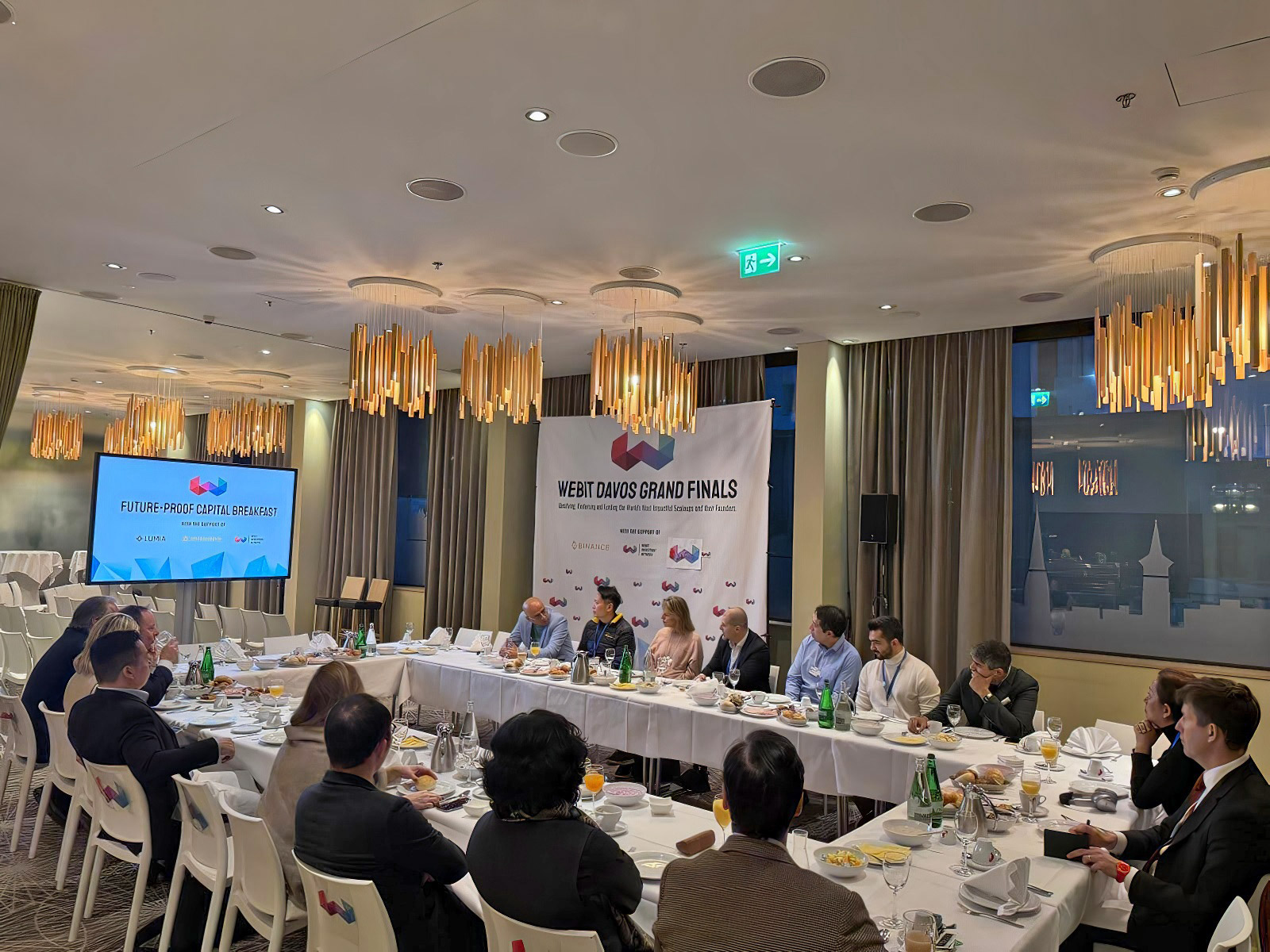

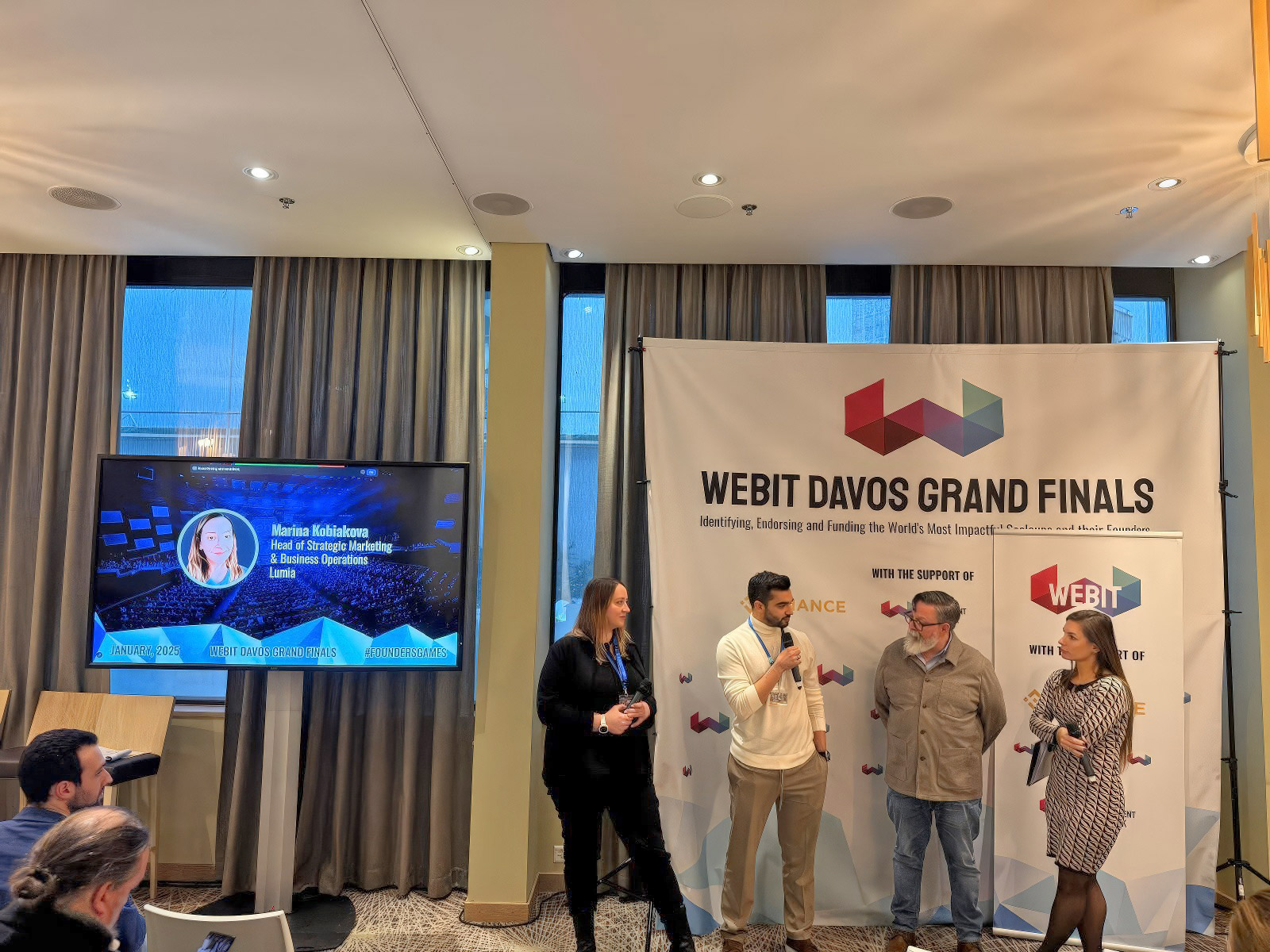

The Winners of Founders Games 2025 are:
- Quolab Technologies (United States) – A leader in defense and cybersecurity innovation, devoted to creating innovative solutions to big/complex data management, visualization, analysis and sharing challenges in the cybersecurity space.
- iLoF (United Kingdom) – a digital health company pioneering a breakthrough AI platform to accelerate the future of personalized drug discovery & development.
- Neodocs (India) – A cutting-edge AI and machine learning firm, YCombinator and Omidyar backed health-tech startup, founded by IIT Bombay alumni - Nikunj, Anurag and Pratik building instant, smartphone based tests that can be done anytime, anywhere - clinic, home, office, travel, hospital, etc.

The Finalists of the 2025 Grand Finale:
In addition to the winners, several exceptional companies made it to the Grand Finale and showcased their transformative innovations to over 400 leading investors and the Davos corporate community:- Expedock (Philippines) – A logistics disruptor, currently in Round A funding.
- QuSecure (United States) – A defense and cybersecurity innovator, in Round A funding.
- SOLAR MATERIALS GmbH (Germany) – A climate and planet tech leader, in Round A funding.
- Vispek (China) – A cutting-edge AI and machine learning enterprise, in Round B funding.
- Wareclouds (Chile) – A logistics disruptor, at the Seed funding stage.

